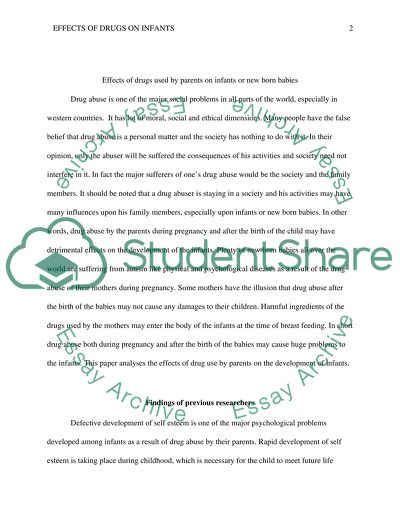Cite this document
(“Effects of Drugs Used by Parents on Infants or New Born Babies Term Paper”, n.d.)
Retrieved from https://studentshare.org/psychology/1449552-affect-of-drug-on-infants
Retrieved from https://studentshare.org/psychology/1449552-affect-of-drug-on-infants
(Effects of Drugs Used by Parents on Infants or New Born Babies Term Paper)
https://studentshare.org/psychology/1449552-affect-of-drug-on-infants.
https://studentshare.org/psychology/1449552-affect-of-drug-on-infants.
“Effects of Drugs Used by Parents on Infants or New Born Babies Term Paper”, n.d. https://studentshare.org/psychology/1449552-affect-of-drug-on-infants.


